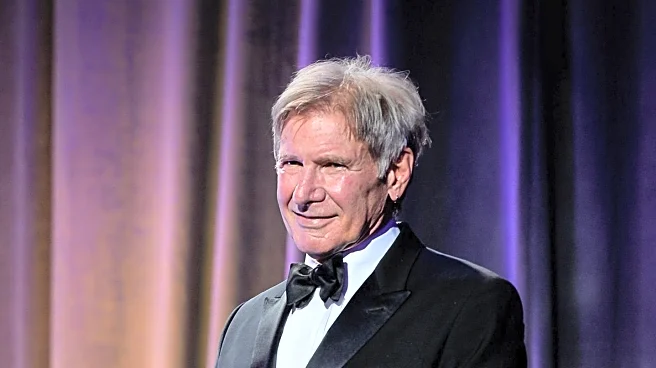What's Happening?
Actor Harrison Ford is set to receive a conservation award at the Field Museum in Chicago on October 29. The award is presented in collaboration with the E.O. Wilson Biodiversity Foundation, a North Carolina-based environmental nonprofit. This event is part of the foundation's Half-Earth Day, which aims to promote biodiversity and conservation efforts. Ford, originally from Chicago, has been an advocate for environmental and conservation causes for over three decades. The event will feature various programs, including talks on biodiversity, sustainable business practices, species research, and wildlife photography. Additionally, Field Museum ornithologist David Willard will be recognized for his work on bird collisions with city windows. The daytime events are free to the public with registration, while the evening award ceremony requires a $15 registration fee.
Why It's Important?
Harrison Ford's involvement in environmental advocacy brings significant attention to conservation issues, leveraging his celebrity status to raise awareness. The award highlights the importance of biodiversity and the need for sustainable practices, aligning with global efforts to combat environmental degradation. The event at the Field Museum serves as a platform for experts and the public to engage in meaningful discussions about conservation strategies. This recognition not only honors Ford's contributions but also underscores the critical role of public figures in influencing environmental policy and public perception. The collaboration with the E.O. Wilson Biodiversity Foundation further emphasizes the importance of scientific research and education in preserving the planet's ecosystems.
What's Next?
The event is expected to foster greater public interest and participation in conservation efforts. It may inspire similar initiatives and collaborations between cultural institutions and environmental organizations. The recognition of individuals like David Willard highlights the ongoing research and efforts needed to address specific environmental challenges, such as bird collisions in urban areas. The Field Museum's involvement could lead to increased educational programs and exhibitions focused on biodiversity and conservation. As public awareness grows, there may be increased pressure on policymakers to implement more robust environmental protections and support for sustainable practices.









